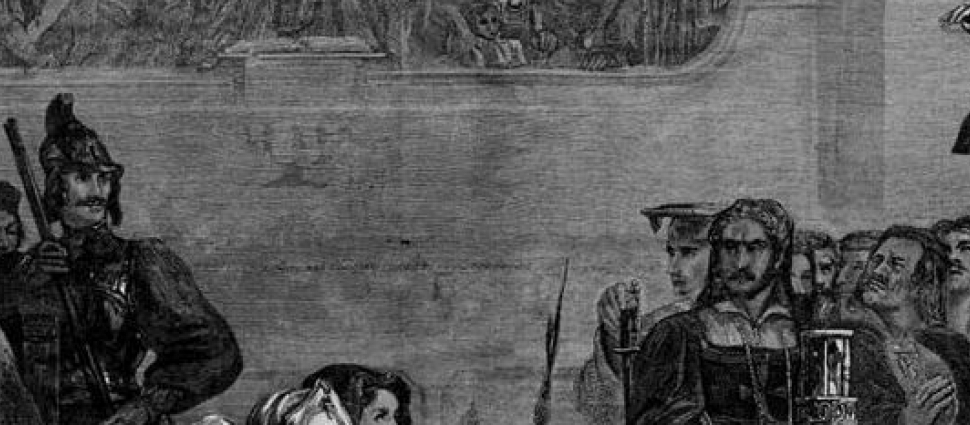John Knox and the Lord’s Supper: Inestimable Blessing

Feb 16, 2017
As we've seen so far in our survey of John Knox's theology of the Lord’s Supper (part 1, part 2, part 3), it is ordained by God and Christ is present in the sacrament. It is also an inestimable blessing for God’s people and is for their benefit in many ways. Let me give a number of examples from his writings on this theme.
A Sign and Seal
The Lord Supper is a confirmation and seal of the promises of the gospel. In the sacrament Christ “confirmeth and sealeth up to us his promise and communion, (that is, that we shall be partakers with him in his kingdom)” (Works, 3:73). The Lord’s Supper then is a confirmation and pledge of the certainty of heaven to the believer. Listen to these beautiful words: “The Father … doth … acknowledge and avow us yet to be of his heavenly household. And to seal the same, his everlasting mercy, more deeply in our heart, and to declare the same before the world, he sendeth us to the table of his dear Son…” (Works, 4:123-124).
A Help to our Weakness
In the Supper Christ “maketh plain to our sense, his heavenly gifts; and also giveth unto us himself, to be received with faith…” (Works, 3:73). Because we are frail creatures it is a help to our faith to have plain and physical signs in the Lord’s Supper, to see signs that are visible to our senses of what Christ did for us in his once for all sacrifice for sin. Thus it is a great blessing that Christ condescends to strengthen our faith in this way.
A Means of Sanctification
The Lord’s Supper is also an instrument in our sanctification. It impacts the lives of those who partake as “through the verity of the Holy Ghost … we, being fed with his flesh, and refreshed with his blood … [are] renewed both unto true godliness and to immortality” (Works, 3:73).
A Time to Remember
The Lord’s Supper was also an occasion to remember the great work of Christ and praise his name as “by the same Sacrament, the Lord calleth us to remembrance of his Death and Passion, to stir up our hearts to praise his most holy name” (Works, 3:73). The Lord’s Supper then should be an occasion of great praise to God as we are called to remember Christ’s work for us (Works, 3:65).
A Pledge and Promise
The Lord’s Supper was also a pledge or promise to the Church that as long as the world endures Christ will have a people for “there is included and contained in this Sacrament, [a promise] that he will preserve his Kirk. For herein we be commanded to show the Lord’s death until he comes” (Works, 3:74). Whenever the sacrament is celebrated it is a reminder that Christ will build his church and the gates of hell will not prevail against it.
Union With Christ
The Lord’s Supper also testifies to “the wonderful society and knitting together of the Lord Jesus and of the receivers” (Works, 3:74). It speaks to us then of our wonderful union with Christ.
The Sheep and the Goats
The Lord’s Supper serves to make “a visible difference betwixt His people and those that were without His league” ("Scots Confession" in Dennison, Reformed Confessions, 2:201). The Lord’s Supper is a picture of the division that there is in the world, between those who are Christ’s body, and those who are not.
A Family Meal
The finally, but by no means unimportantly blessing noted here is that it the Lord’s Supper shows the “band of mutual love among us,” that is, among God’s people (Works, 3:74). The Lord’s Supper shows the unity of God’s people in that “herewith the Lord Jesus gathereth us unto one visible body, so that we be members one of another, and make altogether one body, whereof Jesus Christ is only head” (Works, 3:73).
Conclusion
Thus the Lord’s Supper is a great blessing designed to “exercise the faith of His children and by participation of the same … to seal in their hearts the assurances of His promises and of that most blessed conjunction, union and society which the elect have with their head, Christ Jesus” ("Scots Confession" in Dennison, Reformed Confessions, 2:201).





